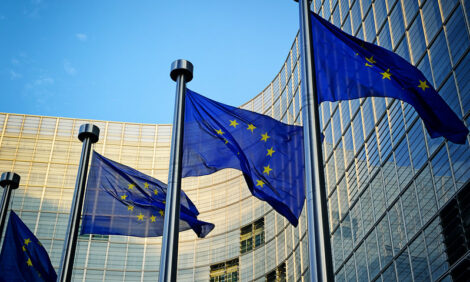



JBS Profits Slump by 78 Per Cent
BRAZIL - Brazilian based beef and pork processing giant JBS saw profits slump by 78 per cent in the third quarter of the year from R$694 million (reals) to R$151.5 million.However, the company reported a 7.8 per cent revenue growth from R$7,771.5 million in the third quarter last year to R$8,379.9 million this year.
The company said that, despite relevant productivity gains in international operations, the impact of the global crisis in important consumer markets resulted in margin contractions.
Joesley Mendonça Batista, JBS President said: "As we progress through 2009, we see signs of gradual improvements in the financial crisis that hit us late last year.
"Throughout the North American and European summer, animal protein consumption remained below pre-crisis levels, although we can identify some signs of an improvement in these markets. Additionally, with incentives such as Cash for Clunkers in the US, we saw the automobile industry revive the leather industry, an important by-product for the company. All in all, things are looking brighter as we move forward, although at a very gradual pace.
"Looking at each market specifically, we regret the fact that our Argentine operation is taking longer than expected to return to profitability but we are absolutely certain that we have taken the best steps to revival. The new management has demonstrated great ability in getting us on track towards running a successful business in that country.
"Notwithstanding the delay in the release of the Hilton Quota (which represents a relevant part of our business in that country) and the slump in exports of cooked frozen beef from Argentina to traditional customers, we expect a gradual improvement in our domestic distribution while we dedicate increasing efforts to a profound internal restructuring.
"We, thus, remain confident that we will soon reach the point where our Argentine business will prosper and recuperate its fundamentals.
"Brazil has demonstrated it is a robust economy in the face of global weakness. Per capita income continues to grow and with it, beef consumption. Our confidence in the strength of this market is helping shape our renewed sales and distribution network, so that, in time, we expect to be closer and closer to the end consumer. On the flip side, the export side of the business continued to suffer from: 1) a strong Real, 2) global crisis and 3) limited exports to Europe."
Mr Mendonça Batista added: "The reduction in our SG&A in the US (and Australian) operations demonstrates that we have made the profound adjustments necessary to be an efficient processor in that market. As drop credits recover (particularly hides) and as consumption gradually picks up, next year promises to look better.
"It is worth mentioning, however, that there was a slight deterioration in the Australian operations, as approximately 70 per cent of the revenues in that country come from exports and the Australian dollar appreciated considerably during this quarter. Additionally, a significant portion of its exports goes to developed markets such as Japan, which are still experiencing the impacts of the financial crisis.
"In Europe, our Italian JV with Cremonini Group continues to perform well regardless of the recession in the Euro zone. The weakness in sales of high value products was amply offset by strong sales in our African depots and as our Russian operation starts up, revenues and margins look to improve in 2010.
"Much was said about sustainability in the past months. As long-term investors in our sector, we have always given priority to the sustainable pillars of our business. The public commitments we have made to society and, particularly, to the communities where we operate are public manifestations of our priorities. Let there be no doubt, JBS is a leading supporter of measures that preserve our land and our society and, as such, we will be in Copenhagen next month as flag bearers.
"We have recently announced two major transactions, and both are on track to be completed as planned. These deals, once approved by the respective regulators, will help improve our efficiency, thus serving the needs of both suppliers and consumers. As we look to the next phase of building a downstream distribution platform, reaching out to end-consumers with a diverse range of animal protein, the dream to become a truly global reference in our sector comes ever closer."








